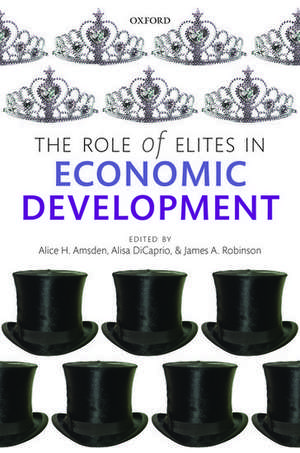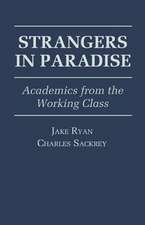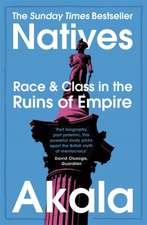The Role of Elites in Economic Development
Editat de the late Alice H. Amsden, Alisa DiCaprio, James A. Robinsonen Limba Engleză Paperback – 27 noi 2014
| Toate formatele și edițiile | Preț | Express |
|---|---|---|
| Paperback (1) | 340.45 lei 31-37 zile | |
| Oxford University Press – 27 noi 2014 | 340.45 lei 31-37 zile | |
| Hardback (1) | 777.47 lei 31-37 zile | |
| OUP OXFORD – 27 sep 2012 | 777.47 lei 31-37 zile |
Preț: 340.45 lei
Nou
Puncte Express: 511
Preț estimativ în valută:
65.16€ • 67.76$ • 54.52£
65.16€ • 67.76$ • 54.52£
Carte tipărită la comandă
Livrare economică 04-10 martie
Preluare comenzi: 021 569.72.76
Specificații
ISBN-13: 9780198716433
ISBN-10: 0198716435
Pagini: 396
Ilustrații: 30 Figures, 48 Tables
Dimensiuni: 157 x 235 x 22 mm
Greutate: 0.59 kg
Editura: Oxford University Press
Colecția OUP Oxford
Locul publicării:Oxford, United Kingdom
ISBN-10: 0198716435
Pagini: 396
Ilustrații: 30 Figures, 48 Tables
Dimensiuni: 157 x 235 x 22 mm
Greutate: 0.59 kg
Editura: Oxford University Press
Colecția OUP Oxford
Locul publicării:Oxford, United Kingdom
Notă biografică
Alice Amsden (now deceased) was Barton L. Weller Professor of Development Economics at the Massachusetts Institute of Technology. She authored Asia's Next Giant and the Rise of 'The Rest'. Most recently, she criticized the 'capabilities' approach to poverty alleviation, arguing that healthier and more educated job seekers cannot get jobs because there are none, and they cannot lower their subsistence wage any further. Some of her last work, alongside co-directing the UNU-WIDER research project and co-editing the resulting volume on the role of elites, was on a manuscript entitled 'The Rational Revolution: Learning from Role Models, Deserting Deductive Theory', which maintains that countries develop by studying what each other do, not from poring over Enlightenment propositions in their orthodox or modern manifestation.Alisa DiCaprio joined the Asian Development Bank (ADB) in 2012 where she is a Regional Cooperation Specialist in the Office of Regional Economic Integration (OREI). She has a PhD in Urban Studies from MIT and an MA from Johns Hopkins University. Prior to joining ADB, she worked for the United Nations University World Institute for Development Economics Research (UNU-WIDER) in Helsinki, Finland. She did her post-doctoral fellowship at New York University's Alexander Hamilton Center for Political Economy. In OREI, she is part of the Trade Team and works on issues including Aid for Trade, Free Trade Agreements and Least Developed Countries. Her research interests include fragile states, trade and development, and social protection.James Robinson is David Florence Professor of Government at Harvard University and a faculty associate at the Institute for Quantitative Social Science. Professor Robinson studied economics at the London School of Economics, the University of Warwick, and Yale University. He previously taught in the Department of Economics at the University of Melbourne and the University of Southern California. Before moving to Harvard he was a Professor in the Departments of Economics and Political Science at the University of California at Berkeley. His main research interest is the political economy of development with a particular interest in Latin America and Sub-Saharan Africa.




















